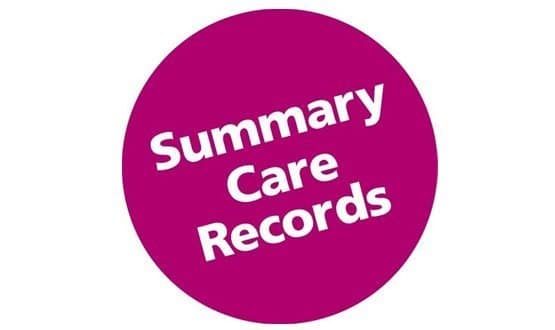SCR ‘at tipping point’ with clinicians
- 12 August 2015

The Summary Care Record is approaching 50,000 views per week, according to figures released by the Health and Social Care Information Centre.
In a document sent by the HSCIC to Digital Health News, the most recent week for data on the SCR is the week commencing 6 July 2015, when the number of times an authorised healthcare professional with patient consent accessed someone’s SCR hit 46,909.
This is around one use every 13 seconds, according to Dr Emyr Wyn Jones, clinical lead for national implementation of SCR.
It is also a jump from the week commending 6 April 2015, when the number of views was 39,292, and the week commencing 1 May 2015, when the figure was 34,212.
All the figures relate to the number of times an SCR has been accessed, not to views of individual SCRs, so they include records that have been accessed a numbered of times.
The SCR was one of the early programmes set up by the National Programme for IT in the NHS, but it was held up for years by rows about confidentiality and consent.
The coalition government eventually gave the go-ahead for a limited version of the SCR in October 2010, restricting the data it holds to allergies, medications and adverse reactions.
It also restricted its use to emergency or urgent care settings where the clinician has explicit consent of the patient, unless they are unable to provide it.
Despite this, NHS England was forced to issue a defence of the SCR this week, after the Daily Telegraph claimed that the decision to give community pharmacists access to the record – reported by Digital Health News in June – would enable supermarkets to market drugs to patients.
The statement in response to the story ‘Tesco can see your medical records’ pointed out that community pharmacy staff would need an NHS smartcard to access the record, and could face sanctions from the general Pharmaceutical Council if they used it for any purpose other than direct care.
There are now nearly 55 million people with an SCR, according to the HSCIC, accounting for around 96% of the population of England.
“There is a general acceptance that the model we have is right,” said Jones, who told Digital Health News that the level of opt-out level from patients has been 1.4%.
The growth in use of the summary record has been supported by a change in contracts for GPs. From 31 March 2015, practices have been required to provide an automated upload of any changes to a patient's summary information, at least once every working day, to the SCR.
According to Jones, this makes the SCR a much more useful tool as it is now much more likely to have up to date information.
In July 2013, the SCR was expanded to include other details, such as end-of-life care information, provided a patient gives consent based on a conversation with their clinician.
The HSCIC is working on making it easier for GPs to add this clinically important other information to individual patient summary care records. This functionality is in place at all TPP sites, accounding for around 40% of GP practices in England, and the HSCIC will start working on rolling out functionality to Emis sites in the third quarter of this year.
The expectation is that 80% of GP practices in England will be supported by the end of 2015.
Richard Ashcroft, SCR programme head, added the service has reached something a “tipping point” is now seen as a “credible product for clinicians.”
He added that the information centre is working on further extensions to SCR access, for instance to clinicians at police custody suites provided the patient gives permission, and on further ideas for “enriching” the record.
The original SCR scope included inpatient and outpatient discharge summaries, and information on encounters with out-of hours-services.




